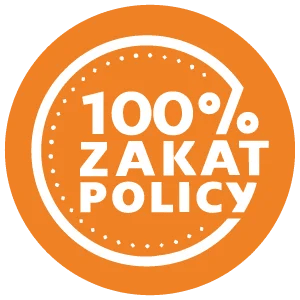How to Spend Zakat and Khums Money in Islam
Zakat and khums are two obligatory forms of charity in Islam that are meant to help the poor and sustain religious institutions at a grassroots level. However, spending zakat and khums money is not allowed in Islam, except for the cases that have been generally permitted by the authorities of Islamic law (taqlid). In this article, we will explain the meaning, purpose and rules of zakat and khums, and how to spend them in a lawful (halal) way.
What is Zakat?
Zakat means “to purify wealth” by giving a compulsory and regular donation to good causes. It is the third pillar of Sunni Islam and the third of the Ten Obligatory Acts of Shi’a Islam. Muslims see wealth as ultimately belonging to Allah, and giving zakat helps to make people more equal. Helping one another is also seen as helping Allah. Zakat donations help Muslims to purify their souls by not being greedy. It is said that the giver of the money will receive a “hundred-fold” back in the afterlife.
Zakat is calculated based on the wealth and income of all Muslims, after they have paid for what is necessary to support themselves and their families. The rate is 2.5 per cent of a Muslim’s wealth, for monetary wealth. There are complex methods of calculating zakat for other types of wealth, such as livestock, crops, gold, silver, etc.
To be obliged to give zakat, an individual must have a certain amount of wealth or savings (after essential living costs). This is called a nisab. The nisab ensures that people who are themselves poor do not suffer hardship in order to give zakat.
The Qur’an (Surah 9:60) reminds Muslims that Allah is all-knowing and all-wise and that he expects Muslims to observe zakat, which can only be used in the following ways:
“Zakah expenditures are only for the poor and for the needy and for those employed to collect [zakah] and for bringing hearts together [for Islam] and for freeing captives [or slaves] and for those in debt and for the cause of Allah and for the [stranded] traveler – an obligation [imposed] by Allah . And Allah is Knowing and Wise.”
- to help the poor and the needy
- to attract people to convert to Islam and to help new converts
- to free enslaved people
- to help people in debt
- to help needy travellers
What is Khums?
Khums means “a fifth” (or 20 per cent) in Arabic. It is the sixth of the Ten Obligatory Acts of Shi’a Islam. This tax is paid on any profit earned by Shi’a Muslims. Shi’a Muslims pay this tax because the Qur’an says:
> “And know that anything you obtain of war booty – then indeed, for Allah is one fifth of it and for the Messenger and for [his] near relatives and the orphans, the needy, and the [stranded] traveler, if you have believed in Allah and in that which We sent down to Our Servant on the day of criterion – the day when the two armies met. And Allah , over all things, is competent.” (Surah 8:41).
The money is split between charities that support Islamic education and anyone who is descended from Islamic prophet Muhammad who is in need.
The scope of khums tax includes spoils of war, objects obtained from the sea (al-ghaws), treasure (al-kanz), mineral resources (al-ma’adin), business profits (arbaah al-makaasib), lawful (al-halaal) gain which has become mixed with unlawful (al-haraam), and the sale of land to a non-Muslim (dhimmi).
How to Spend Zakat and Khums Money?
Spending zakat and khums money is forbidden (haram) in Islam, except for the cases that have been generally allowed by taqlid authorities. Taqlid means following the rulings of a qualified scholar (mujtahid) who has derived them from the primary sources of Islamic law: the Qur’an and the Sunnah (the teachings and practices of Muhammad).
According to most taqlid authorities, zakat and khums money can only be spent on the categories mentioned in the Qur’an or on similar causes that serve the same purpose. For example, some scholars allow spending zakat on building mosques, schools or hospitals, as long as they benefit the poor and needy.
One of the principles that taqlid authorities follow is that zakat and khums money should not be wasted or misused. They should be spent wisely and efficiently, with transparency and accountability. They should also be spent as soon as possible, without delay or accumulation.
Why Do We Have a 100% Payment Policy?
As an Islamic charity institution, we have a 100% payment policy for our donors. This means that we do not deduct any administrative or operational costs from your donations Because we are fully aware that spending it in other cases is Haram(forbidden). We cover these costs from other sources, such as money that we receive from our trustees and staff, or from other donations that are not zakat or khums(obligatory payments in Islam).
We have this policy because we want to ensure that your donations reach the intended beneficiaries in full and without any reduction. We also want to respect the sanctity and purity of your zakat and khums money, which are meant to be spent only on the categories specified by Allah and his Messenger.
We hope that this policy will encourage you to donate more generously and confidently, knowing that your donations will make a difference in the lives of the poor and needy. We also hope that this policy will increase your trust and satisfaction in our work and services.
We thank you for your support and cooperation. May Allah bless you and reward you for your generosity.



